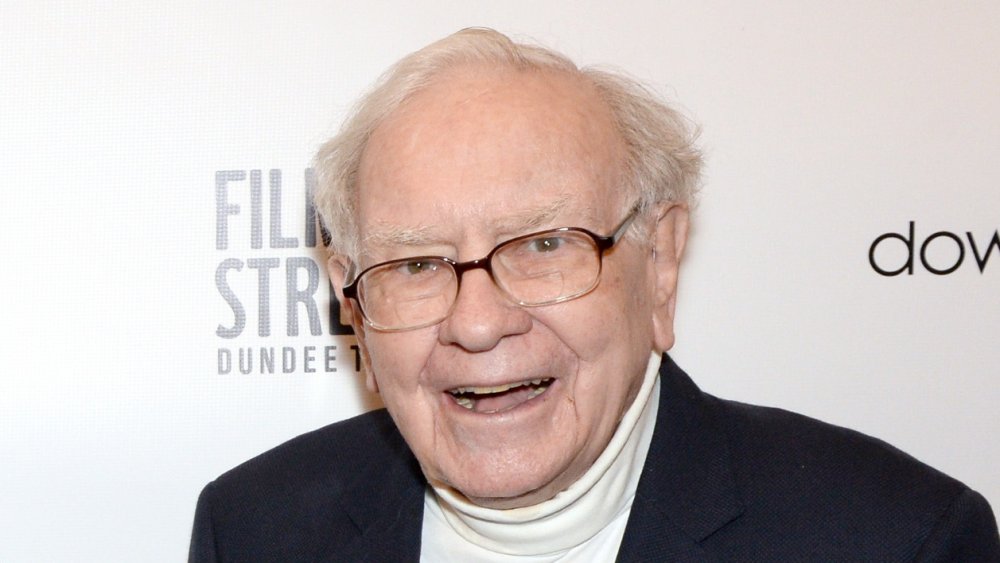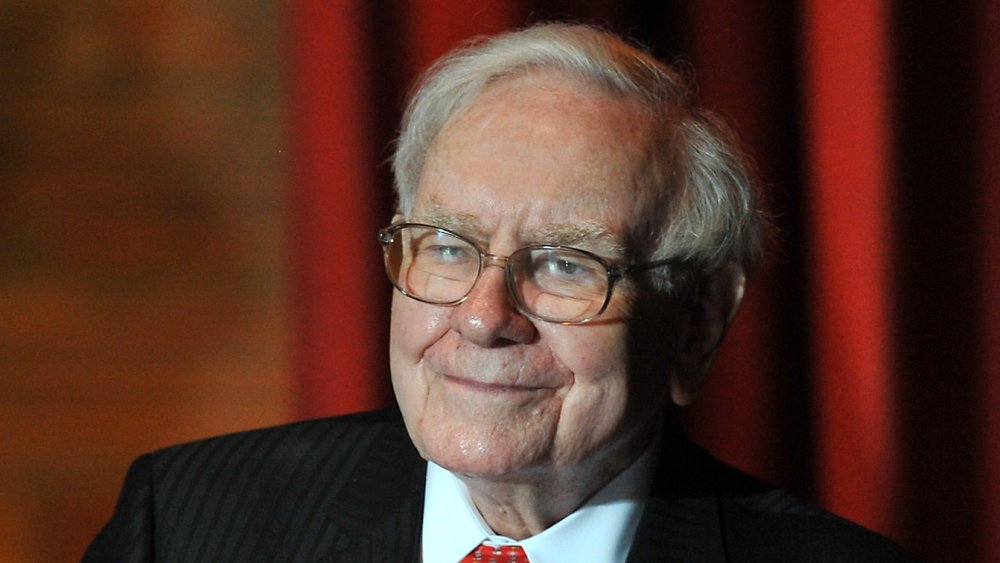Here's How Much Money Warren Buffett Makes In A Day
Ah, Warren Buffett. The CEO/Chairman of Berkshire Hathaway. The "Oracle of Omaha." He's the guy in the "world's richest men" trifecta whose profession is hard to pin down — Bill Gates is the Computer Dude, Jeff Bezos is the Amazon Guy, and Buffett does ... something with stocks, maybe? According to Business Insider, he definitely does, but that's just one aspect of Buffett. it would arguably be safer to say that he's in the money business. He was only ten years old when he decided to "organize his life around money," and ever since then, he has done precisely that. He bought his first stocks at 11, and had saved up the equivalent of $53,000 by the time he was 16. After that, things ... kind of snowballed, and these days, he has a net worth of $89 billion (give or take a couple of billions, depending on the day). Forbes ranks him as the third richest man on the entire planet.
Oh, and Buffett gives almost as good as he gets, too: He's one of the world's most generous philanthropists, and in 2010 he co-created the Giving Pledge organization with Bill and Melinda Gates, campaigning for the super-rich to give the majority of their wealth away to good causes. Buffett has practiced what he preaches, and has given away over $27 billion in the last decade alone.
Can you imagine what it's like to juggle such massive amounts of money? Can anyone, except of course Warren Buffett (and a handful of other real-life billionaires, like Gates, Bezos and others)? Maybe it's better if we break those numbers down. Maybe we could look at his annual earnings? Nope — the guy's 88 years old, so even if he started really early, that's still over a billion dollars every year. Maybe a month? A week? No, we need an even smaller unit of time to truly comprehend Buffett's wealth. Let's take a look at how much money Warren Buffett makes in a day.
Warren Buffett makes up to $37 million per day
It's obviously difficult to estimate the exact daily earnings of Warren Buffett. As Business Insider tells us, he's an investor, which means that some days might not turn massive profits, while others could rake in truly incomprehensible amounts of cash. Besides, he earned the bulk of his fortune after he turned 50, so there really is no point counting the average earnings per day. Instead, let's look at his average daily earnings in the year 2013, a year that CNBC tells us improved his net worth by no less than $12.7 billion. During this year, Buffett made a frankly absurd $37 million per day — which translates to roughly $1.5 million per hour. Yes, even during the hours when he was sleeping. That translates to $25,000 per minute, or $416,67 every second, or ... ugh. Yeah, it turns out breaking it into tiny pieces wasn't all that much help, after all.
How exactly does Buffett make so much money?
Those are certainly some mad figures, but could your average Joe earn as much as Warren Buffett? The man has been at it for many, many decades now, so surely, the world has uncovered his secret to making, say, $37 million a day? We'd probably be satisfied with, like, just half of that. It's negotiable.
Well, there are some good news and some bad news. The good news, as Business Insider tells us, is that Buffett's money-making method is hardly a secret. Despite his nickname, the Oracle of Omaha does not magically recognize a successful stock and go all in until the billions start rolling in. Instead, he simply "bets on stocks with low, yet stable returns," which sounds like something your grandmother might do if she got in the investing game. However, here's the bad news: Buffett's strategy has a second, much more exlusive part. For his betting, he uses "cheap, borrowed money" as financial expenditure to maximize his returns. See, when you're a powerful billionaire, financing establishments will climb over each other to offer you cheap loans — after all, they know you have the money to pay them back. In fact, Buffett doesn't necessarily even need loans, per se, as he can get the equivalent amount of cheap cash from collecting insurance premiums up front, or by using Berkshire Hathaway's no doubt considerable tax deductions as "loans." Does any of that make sense? Don't worry — even if it did, you wouldn't have the kind of leverage Buffett has built over the years to duplicate his billionaire moves.


